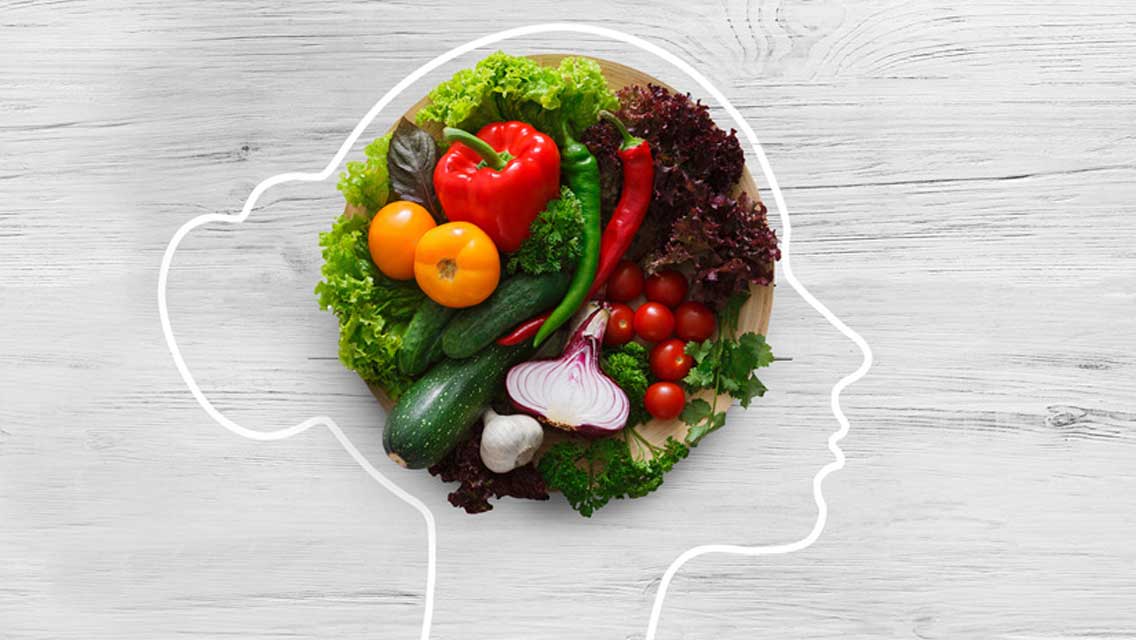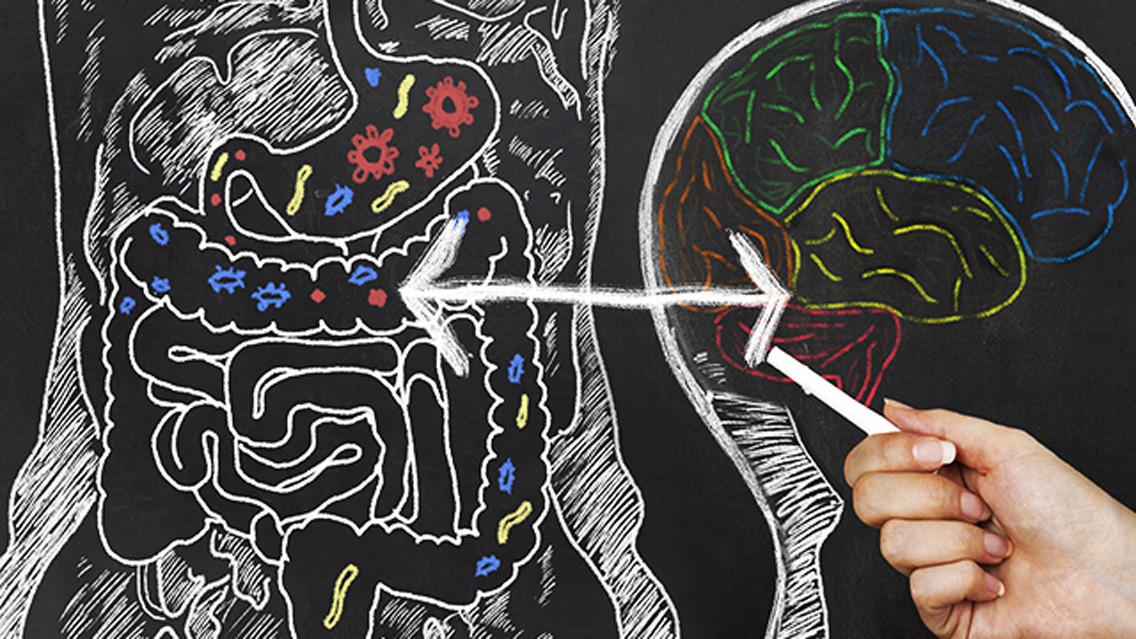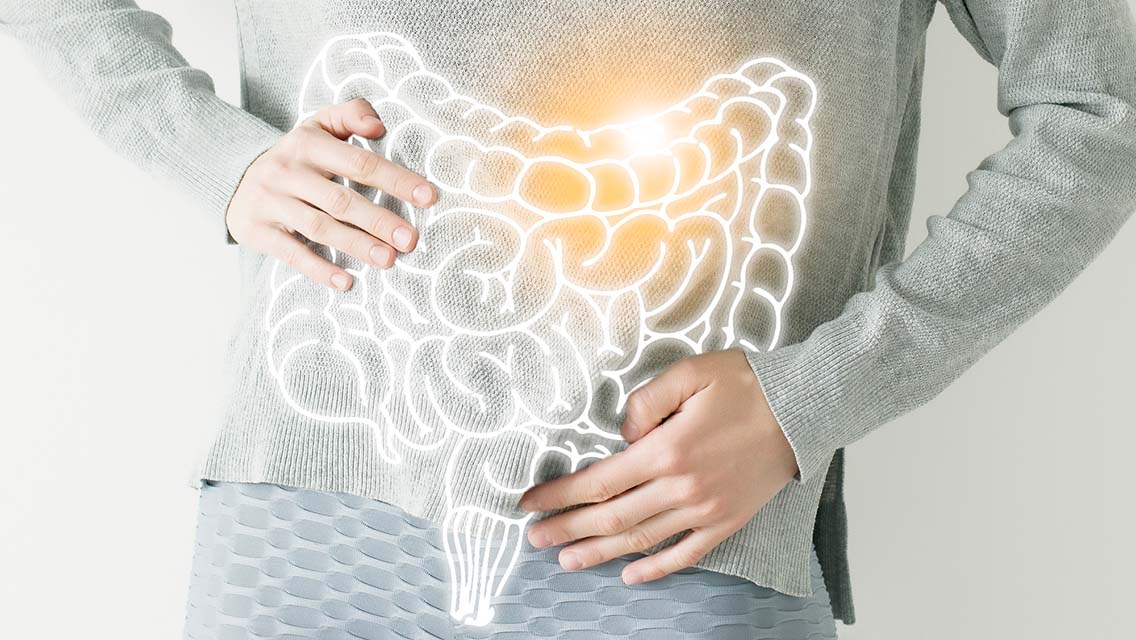Your gut is the new frontier of neuroscience. Scientists now understand that bacteria in your microbiome affects your overall physiology, and they have recently uncovered a connection between that bacteria and your brain. This gut–brain axis has led to a new concept called psychobiotics — probiotics and prebiotics that can influence your mental well-being.
Consider this: You have 23,000 genes in your cells, but they are vastly outnumbered by the 2 million unique bacterial genes in your microbiome. “It has enormous implications for the sense of self,” former National Institute of Mental Health director Tom Insel, MD, told the New York Times. “We are, at least from the standpoint of DNA, more microbial than human.”
Our gut microbes are an essential part of our unconscious system that regulates our behavior, explains Timothy Dinan, MD, PhD, DSc, a professor of psychiatry at University College Cork in Ireland, in a 2015 paper in the Journal of Psychiatric Research. “The development of a complex gut microbiota in mammals has played an important role in enabling brain development, especially in terms of cognitive function and fundamental behavior patterns, such as facilitating social interaction and effectively dealing with environmental stressors.” And with this in mind, researchers hope psychobiotics may someday be used, either alone or in concert with other treatments, to alleviate anxiety, depression, and other mental-health issues — even, perhaps, autism and dementia.
The term “psychobiotics” was coined in a 2013 paper published in the journal Biological Psychiatry. At that point, it referred only to probiotics — live microbes that survive in the gut and have a metabolic effect.
“These bacteria are capable of producing and delivering neuroactive substances . . . which act on the brain–gut axis,” wrote lead author Dinan. “Evidence is emerging of benefits in alleviating symptoms of depression and in chronic fatigue syndrome. Such benefits may be related to the anti-inflammatory actions of certain psychobiotics and a capacity to reduce hypothalamic-pituitary-adrenal axis activity.”
More study of the emerging science has quickly followed and produced fresh insights on what actually constitutes a psychobiotic.
Research published in Psychopharmacology in 2014 argued that prebiotics — bacteria that feed probiotics — should also be added. The report suggested that one prebiotic (Bimuno-galactooligosaccharides) tempered the effects of the stress hormone cortisol and balanced negative emotions in study participants.
A 2016 mega-review of psychobiotic research in the journal Trends in Neurosciences recommended adding “other means of influencing the microbiome” to the definition, including exercise and overall diet. Lead study author Philip Burnet, PhD, associate professor of psychiatry at the University of Oxford, also warned that practitioners should consider the negative effects of antibiotics, antidepressants, and antipsychotics on gut flora.
Meanwhile, scientists are exploring other aspects of our psychobiome.
Norwegian researchers in 2014 discovered a correlation between an abundance of certain bacteria — and the lack of others — in the feces of depressive patients.
And earlier this year a team led by Simon Evans, PhD, assistant research professor in the University of Michigan psychiatry department, published the results of a study in the Journal of Psychiatric Research that found dramatic microbiome imbalances in stool samples of study participants with bipolar disorder compared with a control group.
Evans is optimistic that doctors will eventually prescribe psychobiotics as part of a mental-health treatment protocol. Several other studies have already demonstrated success in reducing “psychological distress” and depression with the administration of probiotics.
Q&A With Simon Evans
We caught up with Evans to talk about psychobiotics and their promise to treat mental illness. Here’s what he had to say:
Experience Life | For nonscientific lay readers, can you please define or describe what a psychobiotic is?
Simon Evans | A psychobiotic is a probiotic capable of influencing brain function or behavior — essentially, a probiotic with psychoactive properties. To back up further, probiotics are live microbes that are taken as supplements or eaten as components of fermented foods (such as yogurt, kimchi, etc.) that survive in the gut, take up residence, and have a metabolic effect on the host — usually a positive effect in this context.
EL | Can you explain how the gut–brain axis works and how psychobiotics play a role?
SE | The gut and the brain have many modes of communication. First, there are nerves running from the brain to the gut and back again that can “talk” to each other, and the microbes that live in the gut can influence this communication stream. Second, microbes can release metabolites that can enter the blood, cross the blood-brain barrier, and have an influence on brain neurochemistry. Third, microbes have a big influence on the immune system (inflammatory and anti-inflammatory), which can influence brain function. Inflammation is a known component of many depressions, for example. All of these influences of gut bacteria can be for better (from symbiotic bacteria) or worse (from pathogenic bacteria).
EL | Do you foresee a day when psychobiotics are prescribed as an adjunct to other therapies for mental illnesses? Might they ever supplant drugs in any way, for certain patients?
SE | Yes, I can certainly envision this. At this point, we can say with reasonable certainty that the composition and activity of the gut microbiome plays a role in mental health. What we don’t know is how specific bacteria influence specific neurochemistry and so are not ready to prescribe specific probiotics for given disorders. Furthermore, it may never be that simple where specific recommendations can be made, due to complex interactions. However, eating quality foods and incorporating fermented foods into the diet to achieve a healthy gut microbiome could be “prescribed” very soon.
For more on how some experts are already using probiotics to boost brain health, see “Healthy Gut, Healthy Brain.”




This Post Has 0 Comments